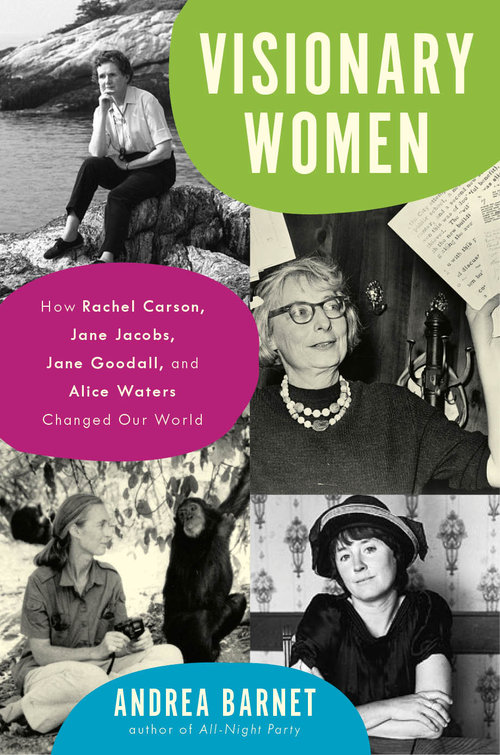
The ideas and influence of Jane Jacobs, the urban activist/theorist/author who died at 89 in 2006, continue to be relevant long after her death. I wrote about this phenomenon in 2017, a year after the 100th anniversary of her birth, at a time when books, articles and documentaries were in the news. Now that more than three years have passed since my blog post, I’m catching up on what’s been happening more recently.
On November 17, the Fall 2020 Jane Jacobs Lecture will be held by Boston College’s The Winston Center for Leadership and Ethics. This year’s lecture is “Sustainability in Urban Communities,” by David Queeley, Director, Eco-Innovation, Codman Square Neighborhood Development Corporation. According to the college, “The Jane Jacobs Lecture explores the challenges of political and community leadership in the urban context. Speakers are selected for their expertise and practice of creating diverse and vital communities, particularly in urban areas. Senator Cory Booker (NJ), then the Mayor of Newark, delivered the inaugural Jane Jacobs Lecture.” The John J. Burns Library at Boston College also has an extensive archive of Jacobs’ papers.
Since my 2017 post, Jacobs was one of the subjects of Andrea Barnet’s well-received book Visionary Women: How Rachel Carson, Jane Jacobs, Jane Goodall, and Alice Waters Changed Our World. There is also a newly released collection, Essays on Jane Jacobs, described by its publisher as: “13 writers consider unique aspects of Jacobs, reassessing her work in the context of our contemporary reality. They explore burning questions about how we build communities and cities – and how we can live together in them.”
As I noted in the 2017 post, “I’m particularly interested in Jacobs and her work because, like me, she was born and raised in Scranton, Pa., and even graduated from the same high school, Scranton Central, (albeit many years before).” I also wrote recently about my Scranton roots in the post “Jorge Luis Borges and the Search for Knowledge in Uncertain Times.”
Jacobs’ Scranton roots came into play earlier this year, when Maria MacDonald, an architecture professor at Scranton’s Marywood University and Director of its Undergraduate Interior Architecture Studies, was named Executive Director of Center for the Living City, the nonprofit organization Jacobs co-founded, and that carries on her work. MacDonald is an area native who grew up near what was Jacobs’ family home.
In addition, next year will see the publication of the book Jane Jacobs’s First City: Learning from Scranton, Pennsylvania; by Glenna Lang. The latter is also the co-author of an earlier book, Genius of Common Sense: Jane Jacobs and the Story of The Death and Life of Great American Cities.
The ideas of Jacobs were reportedly an inspiration for a concept started in France by Sorbonne professor Carlos Moreno, and gaining considerable visibility, “the 15-minute city.” For more on this topic, and the role of Jacobs’ thought and work, see Bloomberg/CityLab’s “How the ‘15-Minute City’ Could Help Post-Pandemic Recovery,” Fast Company’s “Paris’s mayor has a dream of ‘the 15-minute city,’ and Forbes‘ “Want To Regenerate Our Town Centres And High Streets? Develop 15 Minute Music Cities.”
Other recent Jacobs-related web activity includes:
Forbes: Why Jane Jacobs Still Leads In Urbanism
Los Angeles Review of Books: Rereading Jane Jacobs in Quarantine
Medium/Modern City: How Jane Jacobs Fought The Destruction of New York City’s SOHO Neighborhood
The Municipal Art Society of New York: Jane’s Walk NYC 2020 (from Home!): Celebrating Jane Jacobs and New York City
National Trust for Historic Preservation: Jane Jacobs Stories
National Trust for Historic Preservation: Understanding Jane Jacobs: Q&A with Roberta Brandes Gratz
Popular Science: Meet the hero who saved everything you love about modern cities: Jane Jacobs made preserving old neighborhoods cooler than tearing them down.
Strong Towns: “J” is for Jane Jacobs (about the commonalities between Jacobs’ work and Sesame Street)
Thoughtco.: Jane Jacobs: New Urbanist Who Transformed City Planning
The Urbanist: Now is the Time to Re-Read Jane Jacobs Backwards
Urbequity: Jane Jacobs: Death and Life of Cities
The scope of Jacobs’ influence will only continue to gain traction as cities grapple with ways to remain relevant and reinvent themselves. As Eleanor Cummins, in the Popular Science post referenced above, writes: “Her forward-thinking books, particularly the 1961 classic The Death and Life of Great American Cities, challenged conventional practice on urban planning, which favored centralized design and control. Her writings made Jacobs a controversial figure, but also one who established new rules that municipalities follow today.”
